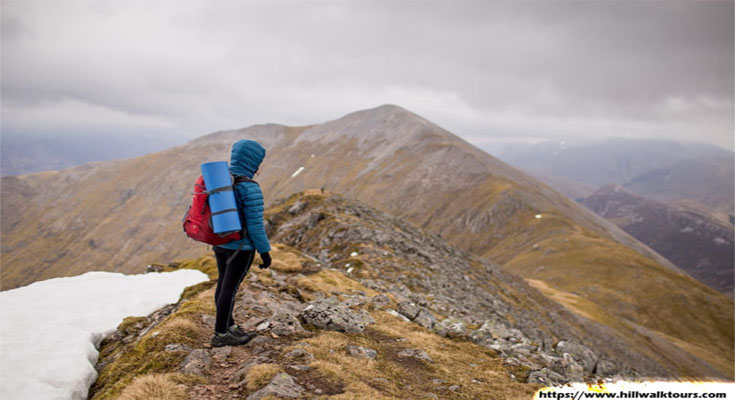A backpacking load does not need to be a back-breaking load even though you have to carry everything you need for camping as well as walking. Keeping the weight down can be done in two ways.
The Weight Of Each Part Of The Equipment Is Very Important
The weight of each part of your equipment, from the tent to your spoon, is important. For days of walking the weight difference between, say, one jacket and the other doesn’t matter much. For backpackers, on the other hand, a little extra weight on each tooth bit can add a sizable amount on the back. If you can’t decide between two dental items, always choose the lighter one. Most stores can tell you how heavy a tent is (though not always accurate) but few know the weight of the clothes they stock.
Taking along a small spring balance for weighing gear when you shop is well worthwhile. Those who intend backpacking in the future would do well to pay careful attention to the weight of any items like waterproofs they buy for day walking. Those who camp at roadside locations must do the same. It might not matter how heavy your tent or sleeping bag is if you arrive at the location by car but if you plan to use the same equipment for backpacking, the weight will be very important.
Everything You Take Is Really Needed
Ask yourself if everything you take is really needed. Be cruel. If you are not sure leave it at home. Then after each trip, check your equipment and see what you don’t need and decide to leave it at home next time other than emergency items such as a first-aid kit (and even the weight here can be saved if you cut a few extra pieces – blister cover or plaster).
As a guide, a summer backpacking load for a solo walker should weigh no more than 251b (11kg) without food or non-essential accessories such as books or camera gear. Adding food at around 21b (900g) a day gives a total of 301b (14kg) for a weekend and 401b (18kg) for a week. Sharing gear can bring this down a little. Very careful attention to weight can do so too; it is possible to get down to around 201b (9kg) for a weekend or 301b (14kg) for a week.
Paying such attention to weight may seem almost obsessive, but the time spent will be welcomed when out on the hill. The difference between a 251b (11kg) and 351b (16kg) rucksack is very noticeable. I have carried some extremely heavy loads over the years, mostly in remote wildernesses where extra gear and many days’ worth of food have to be carried, but I still check the weight of everything carefully. I also know from carrying that burden – some more than 701b (32kg) – that there is a direct connection between how far you can walk and how much you carry.
The Heavier Your Load Is The Slower You Walk
The more often you stop to rest, the longer your rest stops, the faster your feet hurt and your legs feel tired and the sooner you stop for the day. Climbing the hill is also much more difficult. If you want to cover the same ground when backpacking like when walking day then you need a light load. If your goal is to transport your equipment for half a day to the site that you will use as a base for several days as you climb the surrounding hills, then the weight of your initial load may be less important than your desire to have luxury at the camp such as fresh food or even a chair camp. However, for the most part, keeping the weight as low as possible is the way to do it.





